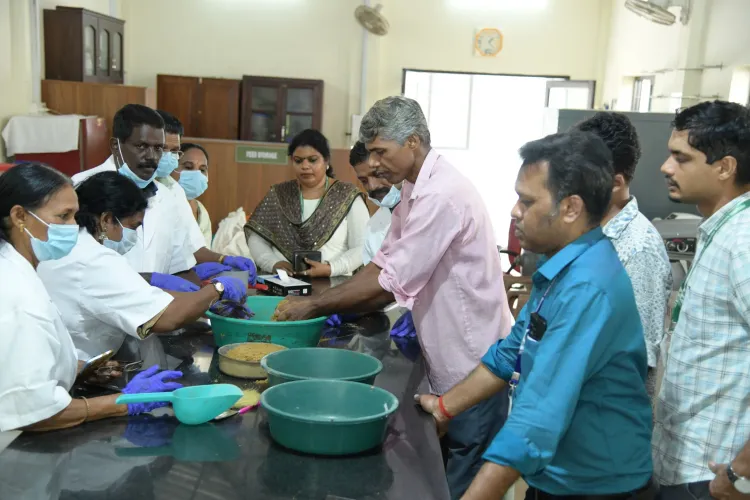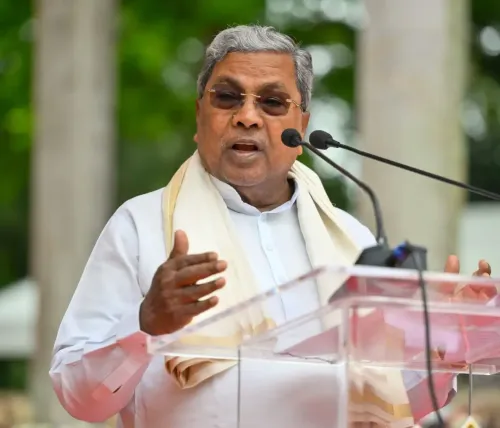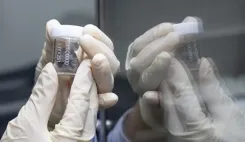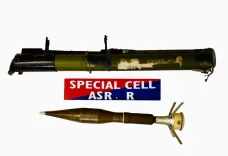What New Training Did CMFRI Launch on Fish Feed Production?

Synopsis
Key Takeaways
- CMFRI launched a training program on sustainable fish feed production.
- Focus on using Black Soldier Fly Larvae (BSFL) to enhance aquaculture.
- Training supports Scheduled Caste farmers in coastal communities.
- Cost-effective feed preparation can improve profitability in fish farming.
- CMFRI's initiatives promote innovation and sustainability in aquaculture.
Kochi, July 10 (NationPress) In celebration of National Fish Farmers Day, the ICAR-Central Marine Fisheries Research Institute (CMFRI) has initiated a comprehensive three-day practical training program focused on sustainable fish feed production utilizing Black Soldier Fly Larvae (BSFL).
Over the years, CMFRI has actively expanded its array of centrally-sponsored initiatives.
This training aims to equip beneficiaries of CMFRI's Scheduled Caste Sub Plan (SCSP) with essential practical knowledge and skills in sustainable feed formulation and production techniques suitable for cage fish and bio-floc farming.
The fish feed derived from BSF larvae is highly effective in enhancing fish growth within aquaculture, serving as a viable alternative to traditional feed components like fish meal and soybean.
BSF larvae are recognized as a nutrient-dense and environmentally friendly protein source.
CMFRI Director Grinson George, who inaugurated the training, noted that this initiative is part of CMFRI's commitment to improving livelihood opportunities for marginalized coastal communities through targeted capacity-building efforts.
"Feed costs represent a significant expense in fish farming, accounting for 40-60% of the total operational costs on average. This percentage is even greater in intensive farming systems. Therefore, developing cost-effective pellet feed is vital for enhancing profits in cage and bio-floc fish farming, which are increasingly popular livelihood options, especially for women," stated Dr. George.
"Participants will learn how to process BSF larvae into fish feed, highlighting its potential to lessen reliance on traditional fish meal while promoting circular economy practices in coastal aquaculture," he added.
Through the SCSP initiative, CMFRI provides support to fish farmers from the SC community to adopt economical coastal aquaculture methods, including cage fish and bio-floc farming.
The support framework encompasses various training programs and technological advancements.
The institute's initiatives in caged fish farming, pen fish farming, bio-floc fish farming, and seaweed cultivation have substantially benefited these communities.









